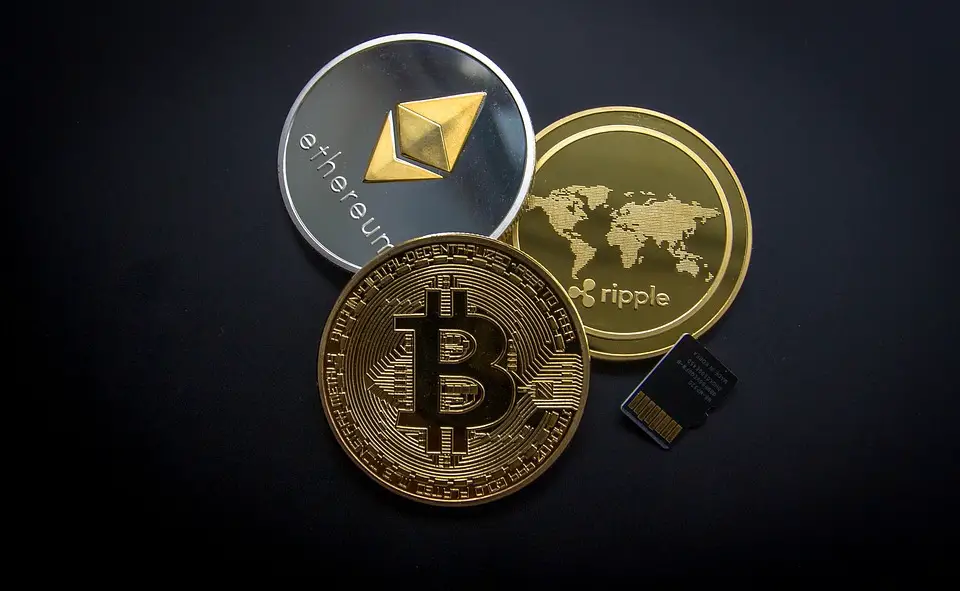As Poslovni Dnevnik/Lucija Spiljak writes, investing in cryptocurrencies in Croatia still boasts a trend which is significantly stronger than the mere use of cryptocurrencies for payments boasts, which is something that is still very much in its infancy in this country.
“Paying with cryptocurrencies in Croatia is something that is just beginning. Personally, I use this method of payment on a daily basis, from buying food and drink, to fuel, concert tickets to appliances and even cars,” said Nikola Skoric, the head of Electrocoin, a company that mediates in cryptocurrency trading and processes crypto payments in Croatia.
He then presented the case of the largest cooperation in the Croatian cryptocurrency market, the one between Electrocoin and Konzum, which enabled Konzum customers (when shopping on their website) to pay for their goods in cryptocurrencies through Electrocoin’s PayCek, Croatia’s first cryptocurrency payment processor. While that’s all well and good, what exactly is the level of interest of the ”average Joe” in this payment possibility?
Uros Kalinic, a member of Konzum’s Management Board for Finance and IT, agrees that this method of payment is still in its infancy, but he also revealed that Konzum records payments in cryptocurrencies in its online store almost every single day.
“Individuals and legal entities, owners of cryptocurrencies in Croatia, can buy and pay for their groceries, hygiene and household supplies and other products from Konzum’s online store which has more than 12,000 items for sale. We expect an increase in people’s general level of interest, as was the case with card payments and other innovations, such as the use of self-service check outs, cashless check outs and the use of Google and Apple Pay applications (apps).
Payment in cryptocurrencies in Croatia is currently possible on Konzum’s online store, and we’ll soon introduce this option in other stores throughout Croatia. At Konzum, we’re constantly trying to offer our customers new opportunities and technologies,” said Kalinic.
They realised the project in just a few months, and the experience of buying items on their online store, as well as paying with cryptocurrencies, is simple and similar to card payments. “When completing the product selection, the customer can choose the cryptocurrency payment option and the system will offer him a list of those available. After selecting the desired cryptocurrency to pay with, the amount in its equivalent is displayed and a QR code and payment address are generated, after which the customer simply scans the QR code. With the confirmation of the transaction, they will make the payment and confirm the transaction from the PayCek system of our partner Electrocoin by e-mail, while Konzum will send the customer an invoice for the paid service or product,” explained Kalinic.
All receipts issued by Konzum are fiscalised in accordance with the normal regulations, including those paid in cryptocurrencies. Kalinic noted that Konzum has no direct contact with cryptocurrencies at any time, and that when it comes to volatility that is specific to cryptocurrencies, customers have no risk because Electrocoin is the one which has taken the risk.
Customers have a fixed exchange rate of 15 minutes, which is the warranty period for making a payment on Konzum’s online store. “The whole process of buying and paying with cryptocurrencies, in addition to being secure, is very simple for the buyer, which was one of the preconditions for embarking on such a revolutionary venture,” said Uros Kalinic.
Before Konzum, Tifon embarked on this venture, introducing the possibility of paying with cryptocurrencies in Croatia at its fuel stations as of February the 2nd last year. From Tifon, they stated that since then, the number of transactions on a monthly basis has been constantly increasing. Significant growth was noticed during the summer months with the arrival of foreign tourists, but this, they say, was expected because cryptocurrencies are a more popular means of payment abroad.
“However, we must point out that through the reports we can see that cryptocurrencies are increasingly being used by customers who live in Croatia, which is a good result considering that the number of customers who use cryptocurrencies is still relatively low here on the Croatian market. In addition to that, it is a very interesting fact that cryptocurrencies were mostly used at locations on the motorway heading down to the Croatian coast, but in both directions, then in Zagreb and even at all points of sale in Slavonia, which pleasantly surprised us,” they added from Tifon.
The process of introducing cryptocurrency payment options was simple and took only two months. Firstly, they defined the entire process within the company, which includes cash payments, fiscalisation and invoicing, data transfer to their reporting system, tracking the payments from the PayCek platform and final postings in ERP. The second step involved the development, ie the integration of PayCek into the internal retail system using the API interface developed by Electrocoin. The third step involved detailed testing in which the detected deficiencies were readily corrected. For the fourth step, they created profiles on the PayCek platform and connected them to the cash registers. The final, fifth step was to put the service into production.
“Transactions are fiscalised in the same way as all other transactions are, with the remark that when sending data to the fiscal system of the Tax Administration, only the type of payment should be referred to as ”Other/Ostalo”.
Tifon doesn’t accept cryptocurrencies itself, the PayCek platform does it for us, which converts the cryptocurrency into Croatian kuna when the customer pays the bill, and Tifon immediately receives kuna for its products/services. Following the above, it’s logical that such transactions are marked as ”Other” under the type of payment, which is also mentioned on the receipt that we issue to the customer following payment,” they explained from Tifon.
The City of Sveta Nedelja threw itself into the use of cryptocurrencies in Croatia and quickly embarked on this endeavor. They were among the first in the world to introduce the possibility of paying utility fees in cryptocurrencies, obviously realising that this was a trend that would become very popular with time.
“The reason for that is the focus on modern technologies, as well as monitoring market demands. We’re primarily refering a large number of successful companies operating in the area of our city, such as Rimac Automobili, Greyp Bikes, Medical Intertrade, Sancta Domenica and many others. In addition to that, the goal is to create opportunities for further development of the IT industry across Croatia and also to attract companies to keep up with the times in which the world of cryptocurrency and blockchain technology is undoubtedly one of the drivers of development. At this moment in time, Sveta Nedelja is carrying out several payments using this method, which is understandable considering that cryptocurrencies are viewed through the prism of investment opportunities.
The transaction starts on the website of the City of Sveta Nedelja where all personal data is filled in, then the payment section is selected, and then the user connects to the PayCek payment system where the user has the option to choose one of several cryptocurrencies (such as BTC, ETH, XLM, BCH , XRP, DAI, EOS, USDT, USDC, BUSD, SOL).
After choosing a cryptocurrency, we connect to our own so-called wallet (for example Exodus), select the cryptocurrency sending option and enter the wallet address received in the PayCek payment system. The City of Sveta Nedelja then receives the payment in kuna, considering that the conversion was made through the above-mentioned system,” they explained from Sveta Nedelja’s administration.
Although paying in cryptocurrencies in Croatia is still in its infancy, perhaps, as Skoric said, this is just the beginning of something new.
For more, check out our lifestyle section.












